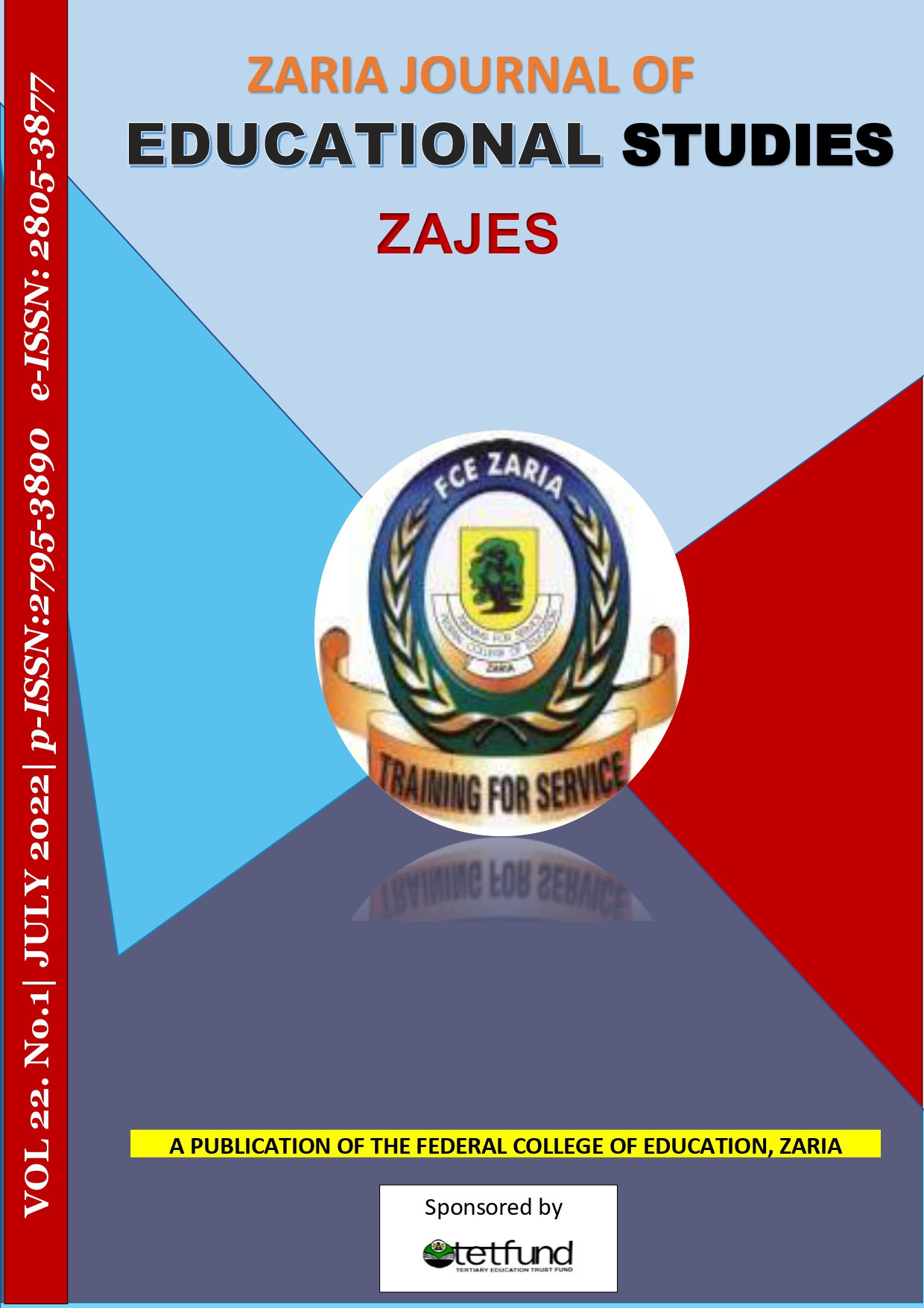Bridging Gender Disparity Factors in Advanced Pedagogy
Implications for Curriculum Delivery in Kaduna State
Keywords:
Gender disparity, advanced pedagogy, pedagogy skill endowments & practiceAbstract
Bridging gender disparity factors requires systemic changes in policy and social interactions at all levels of society, including the family, workplace, school, public services, and media. This study, therefore, investigates the difference in the recruitment process for male and female teachers in Kaduna State; ascertain the difference in the pedagogy skill endowments of male and female teachers in Kaduna State; and find out the difference in the pedagogy practice between male and female teachers in Kaduna State. In line with the stated specific purpose, three corresponding research questions were raised, and three null hypotheses were formulated in the study. The study adopted a descriptive survey design with a population of 5,712 respondents comprising 370 principals, 5,113 teachers and 229 ministries of education officials. Random sampling was used to select the sample size of 365 respondents, consisting of 340 teachers, 15 principals and 10 ministry of education officials. Data was collected using a standardised questionnaire created by the researcher. The Cronbach Alpha method was used to determine the instrument's reliability. The pilot test yielded a coefficient of 0.86, which was deemed high enough to make the instrument reliable for the study. Frequency counts, mean and standard deviation were used to answer the research questions, while Kruskal-Wallis was used to test the three null hypotheses at 0.05 level of` significance. Findings revealed that; the recruitment exams, interview, and other procedures administered to female teacher applicants are the same with those given to male teacher applicants. However, the study also discovered that male and female teachers have different pedagogy skill endowments and practise. Hence, it was recommended among others that: Kaduna State government should promote policy reforms that ensure women have equal protections and rights in terms of education, recruiting, on-the-job training, support initiatives for women, school management and leadership.

